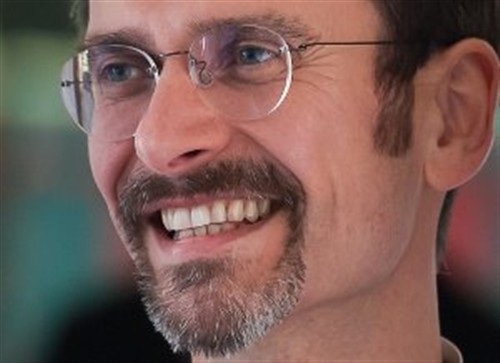A call to be counter-cultural to show Godliness
 There’s much in the Christian scriptures to commend the idea that the church was called to be counter-cultural, set apart from the world to be God’s people, to live in accordance with God’s will says Rev Dr Paul Overend.
There’s much in the Christian scriptures to commend the idea that the church was called to be counter-cultural, set apart from the world to be God’s people, to live in accordance with God’s will says Rev Dr Paul Overend.
Paul explains to the Galatians that before Christ came, ‘we were… enslaved to the elemental spirits of the world’ (Gal 4:1, cf. Eph 2:2), but after him they are no longer slaves, but children of God. He charged the Romans, ‘Do not be conformed to this world, but be transformed by the renewing of your minds, so that you may discern what is the will of God—what is good and acceptable and perfect.’ (Rom 12:2) He reminds the Corinthians that God ‘made foolish the wisdom of the world’ (1 Cor 1:20) by taking a way that was foolish, low and despised in the world. Indeed, Paul boasts of the cross ‘by which the world has been crucified to me, and I to the world.’ Demas, on the other hand, left Paul, ‘in love with this present world.’ (2 Tim 4:9)
In the ‘Parable of the Sower’, in Mark (4.19) and Matthew (13.22), Jesus refers to the seed that ‘was sown among thorns’ as ‘the one who hears the word, but the cares of the world and the lure of wealth choke the word, and it yields nothing.’
For James, ‘Religion that is pure and undefiled before God, the Father, is this: to care for orphans and widows in their distress, and to keep oneself unstained by the world.’ (Jam 1:27). He calls those who are worldly ‘Adulterers! Do you not know that friendship with the world is enmity with God? Therefore whoever wishes to be a friend of the world becomes an enemy of God.’ (Jam 4.4)
In the letter of John, the writer warns his readers, ‘Do not love the world or the things in the world. The love of the Father is not in those who love the world; for all that is in the world—the desire of the flesh, the desire of the eyes, the pride in riches—comes not from the Father but from the world.’ (1 Jn 2:15-16) The letter of Peter speaks of Christians ‘as aliens and exiles’ from the world, urging them to resist wordly temptations.
According to John’s gospel Jesus came into the world for judgement (Jn 9.39 krima, or ‘to effect a decision’), not to condemn the world, but to save it (Jn 3.17) by being a light in the darkness illuminating a different way. (Jn 8:12). The time for this decision is now (Jn 12.31). The decision is to belong to the world or to belong to Christ, even though that will provoke hostility from others. ‘If you belonged to the world, the world would love you as its own. Because you do not belong to the world, but I have chosen you out of the world—therefore the world hates you.’ (Jn15:19) In Jesus’ prayer to his father, he says of his followers, ‘They do not belong to the world’ (17: 14, 16). He summarises by saying that only ‘those who hate their life in this world will keep it for eternal life’. (Jn 12.25)
The cry of the early desert fathers was, ‘Fuga Mundi’ – ‘Flee the world’. They fled into the desert in order to save themselves from the overpowering, damaging and enslaving influences of their world, and not only sexuality. Though later religious, following St Francis, sought to remain in the world, in their choosing of poverty and humility and holy foolishness they sought to separate themselves from the world.
Such references make sense to us only when we know they do not refer to the creation, the natural environment, which is good (Genesis 1), but to the social life with its status and power games (Lk 1:51-2), social pretences (even religious pretences to piety, Mt 23:14), excessive ownership (Mt 8:10, Mk 6:8, 10:21) and wealth (Mt 19:27, Mk 10:25), and injustice. But our market-oriented society today is very driven by status, wealth, image, power and wordly success. One only needs to go shopping to see the many appeals to image and greed.
Regretfully, the church can often be a pale echo of this, and in parts is very worldly in Christians’ and Churches’ seeking status, wealth and success. What we need is a new prophetic counter-culturalism, a new monasticism, a way of standing against those values of our society that reflect worldliness rather than godliness.
 Rev Dr Paul Overend is Assistant Priest at Wymondham Abbey
Rev Dr Paul Overend is Assistant Priest at Wymondham Abbey
The views carried here are those of the author, not of Network Norwich and Norfolk, and are intended to stimulate constructive debate between website users.
We welcome your thoughts and comments, posted below, upon the ideas expressed here.